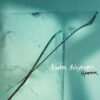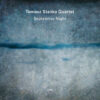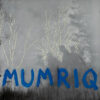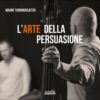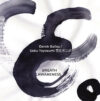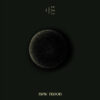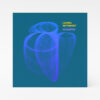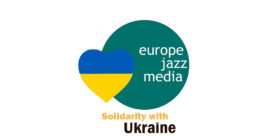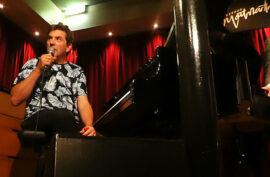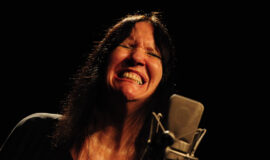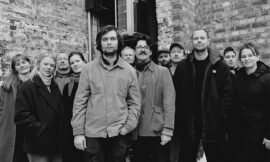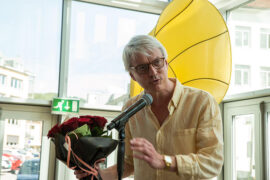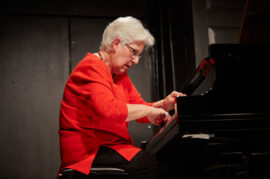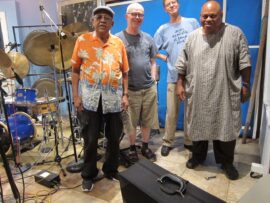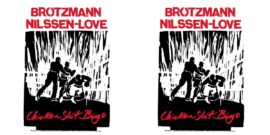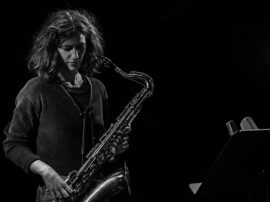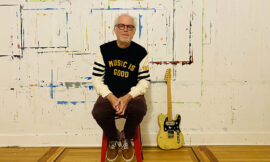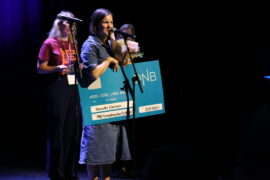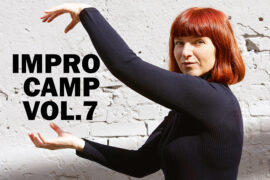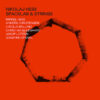
«Spacelab & Strings» unites two revered formats – the piano jazz trio and the classical string quartet. Danish pianist-composer Nikolaj Hess leads his Spacelab trio with long-standing comrades – double bass player Anders ‘AC’ Christensen and brother-drummer Mikkel Hess, all playing together since their childhood. Violinist Cæcilie Balling leads the Strings quartet, featuring violinist Christian Ellegård, violist Jakup Lützen, and cellist Josefine Opsahl. This intimate meeting led to an expressive orchestral interplay that interweaved and multiplied the colors and the dynamic sound of the new septet.
Hess studied the violin together with the piano, and later explored the art of string writing, as well as the works of great composers like Ludwig van Beethoven and Maurice Ravel, and was commissioned to write for strings over the years, including for Lars Von Trier’s film «Melancholia». Hess collaborated regularly with violinist Balling, and wrote for her a solo violin piece, «Melody». She and Hess co-produced «Spacelab & Strings». The joint project premiered at the 2019 edition of the Copenhagen Jazz Festival.
«Spacelab & Strings» expands Hess’ Nordic jazz aesthetics, inspired by folk music and the legacy of ECM music, but offers a wider, cinematic perspective of Hess as a resourceful and imaginative composer. Accordingly, the opening piece is titled «ECM Country», an austere, lyrical melody that reflects the simplistic beauty of the Scandinavian landscape, and cements the warm affinity between the jazz trio and the string quartet, as well as the natural flow of the septet interplay. The following «Piece» flirts gently with the blues but solidifies the introspective, melancholic mood of this project. Later on, «Black & White» captures this kind of melancholy beautifully, articulated beautifully with opposing, major and minor tonalities, while the last, brief piece «Intro Exit» dives even deeper into this somber mood.
Few pieces stress Hess as a gifted contemporary composer. Two pieces reflect Hess’ deep love for Ravel’s work. The chamber, delicate «Indigo Meadow» relates to color in nature. The following, extended and evocative «Ravel Reflections» borrows the composer’s Second Movement from his «String Quartet in F Major» (1903), and balances the exquisite strings arrangement with playful and rhythmic jazz improvisation, climaxing with a brief, passionate dance. The dramatic «Tinir» («your» or «yours», referring to sharing) is an arrangement of Hess’ composition for a Faroese saga, originally sung by three choirs, and here performed by the string quartet with reserved rhythmic touches of AC and Mikkel Hess. The minimalist and meditative «Trio1», performed by Spacelab alone, was inspired by the music of Arvo Pärt.
Three pieces represent the ironic, subversive side of Hess’ music. «Seven Ate Nine» is a subtle study in polyrhythms and odd meter chordal and harmonic relationships. The title of the following piece, «Danish Accents Lost In The Bush (In a Broke Down Yellow Volkswagen in Nigeria)» is based on a true story, when Hess was stuck in the Nigerian countryside with Fela and Femi Kuti, and adopts steamy African rhythmic patterns into the chilly Nordic atmosphere. «Kontra Punk» is an anti-counterpoint classical piece that explores many detours in its unstable course.
Eyal Hareuveni
Nikolaj Hess (p), Anders ‘AC’ Christensen (b), Mikkel Hess (dr), Cæcilie Balling (vio), Christian Ellegaard (vio), Jakup Lützen (viola), Josefine Opsahl (c)

